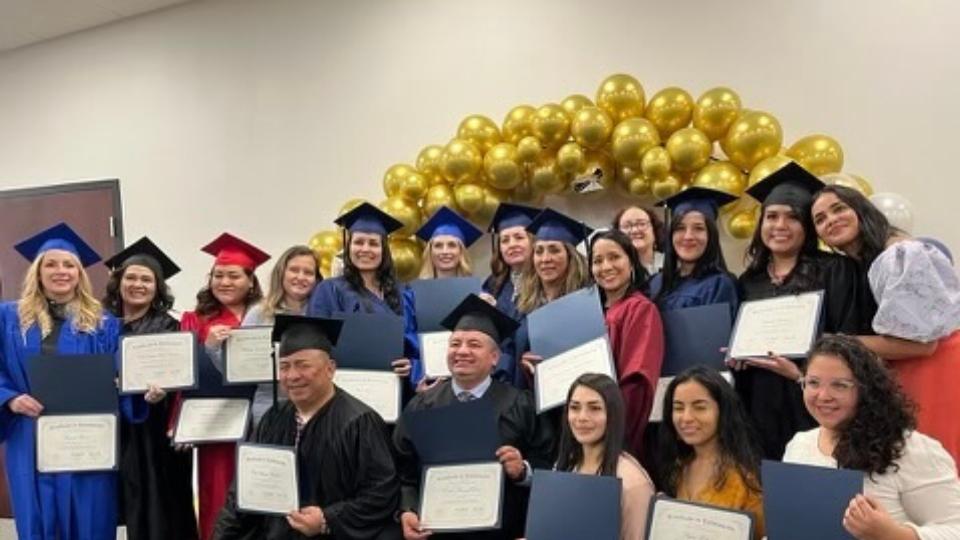USU Extension Celebrates New Cohort of Latino Community Health Workers

Utah State University Extension recently hosted the first all-Spanish-speaking community health workers cohort. Twenty Latino students learned public health skills over five months to receive the state certification to become community health workers. As part of the certification, participants received training on “Mejore su salud,” a Create Better Health (CBH) curriculum that has been culturally adapted and taught in Spanish for Latino Extension audiences. Participants also worked on a final project addressing public health issues affecting the Hispanic community or relating to their respective workplaces. A graduation ceremony was held to celebrate the participants and their efforts.
“This not only signifies participants’ achievements, but it also marks the beginning of a collective effort to improve the health and well-being of the Latino community in Utah,” said Celina Wille, USU Extension specialist and CBH Latino program director. “Community health workers play a vital role in ensuring that our residents receive the care and support they need to live healthier lives.”
Community health workers are trained public health workers who help connect people with healthcare and social services. They educate individuals and communities about health and wellness through outreach, counseling, and advocacy. Graduates of this program can work at hospitals, community non-profit organizations, health departments, and others.
“With the changing demographics in Utah where almost 20% of the population is Latino and Spanish speaking, it is important to train professionals who can bridge both the language and cultural gaps and deliver culturally appropriate health information,” Wille said.
The group was led by Maria Jose Velasco Burgos, USU Extension assistant professor in Grand County and Create Better Health Latino program co-director, who recruited participants from across the state.
“It is truly remarkable to witness the impact of these initiatives on our community, not only promoting professional growth but also creating a deep sense of belonging and recognition,” Velasco Burgos said.
Participants graduating from the cohort will receive comprehensive support, including follow-up sessions and connections to community-based organizations. They have access to leadership opportunities, receive assistance with resumes and job applications, and are supported in obtaining further trainings and certificates. Additionally, they are linked to USU Extension programs in their respective counties.
“My wife and I took this course, and it pushed us to look beyond statistics, reminding us of the importance of approaching each individual with respect and understanding, recognizing cultural diversity,” said Efrey Guzman, course graduate. “We feel inspired and empowered to contribute to the well-being of the community, uniting cultures, building bridges and strengthening ties between different cultures.”
The USU Extension Home and Community Department will host the next community health worker cohort in February 2024. Interested participants can contact Maria Jose Velasco at maria.velascoburgos@usu.edu or Ryan Benally at Ryan.benally@usu.edu for more information.
Contact
Celina Wille
celina.wille@usu.edu


 Utah 4-H & Youth
Utah 4-H & Youth